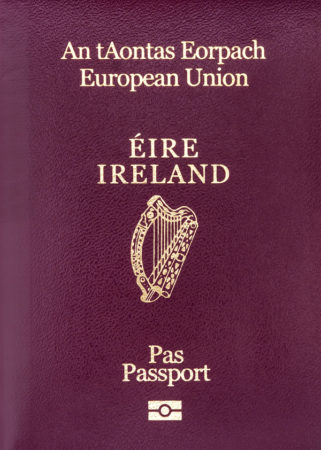25 June 2025
By Valerie Ryan
valerie@TheCork.ie
Politics
Independent Ireland TD Ken O’Flynn has said the state’s commitment to ensure that a robust policy on countering potential national security deficits is in place cannot be subjected to the whims of political correctness or any other political sensitivities that could expose the state and its citizens to the actions of people seeking to exploit vulnerabilities in the Irish passport and citizenship application process.
The Cork North-Central TD was speaking after he raised the issue with Minister for Justice Jim O’Callaghan during Leaders Questions in the Dáil.
Deputy O’Flynn highlighted what he called the astonishing disparity that exists within the immigration and passport verification systems as applied to Irish citizens and those who acquire Irish citizenship after having come through the asylum or international protection system:
“I have no real sense that the minister fully grasped the implications of the issues that I raised today, which in and of itself I find deeply disconcerting. In fact, his willingness to deflect and discuss issues tangential to the core concern I raised was bizarre.”
“Let us be clear. Every Irish citizen knows just how rigorous the process is to get a passport. Parents applying for a child’s first passport must submit a long-form birth certificate, photographic ID, and have everything signed off by a Garda. It can take weeks, sometimes months, and the standards are strict—as they should be.”
“Now let’s look at what’s happening within another arm of the State.”
“People who enter Ireland with no identification at all—no passport, no birth cert, no official document—are being allowed to apply for asylum and later, in some cases, for Irish citizenship. And in certain circumstances, where they say they cannot obtain ID, they are allowed to submit a sworn affidavit instead—a legal document that simply declares who they are. Once that affidavit is accepted, and if citizenship is granted, the Department of Foreign Affairs then accepts the naturalisation certificate without question, and issues an Irish passport. No further checks. No further questions.”
Deputy O’Flynn pointed to parliamentary replies he had received where it was confirmed to him by both the Passport Office and the Department of Justice that they do not keep track of how many people have been granted citizenship or passports in this way. “The State is simply not counting,” he said.
“Just to put some numbers on how big a problem this could be; in 2024, a total of 775,000 passports were issued between January and August. It was anticipated that this number would rise to 1 million by the years end. 56 thousand of those were from my own county of Cork. Of course, the vast majority are legitimate, but shouldn’t we know that all of those applications were subjected to proper scrutiny at every point along the chain and based on cast iron verification processes?
“This is not about compassion. It’s about consistency. It’s about national security. It’s about waking up to the fact that our naivete and our laxity can be weaponised against us. It’s about public confidence in the documents we issue in the name of the Irish people. It’s about realising that there is a cohort of people out there who are not bound or constrained in any way by the norms we apply.”
“This is a fundamental failure of basic due diligence and governance in the national interest. The process must be tightened up to the greatest extent possible and where any doubt exists then no passport should ever be issued.”
“The minister needs to get his head around the gravity of this issue sooner rather later. The state’s posture toward verification cannot be to treat as some merely procedural issue. It must be far more robust than that, which is precisely what I have called for today”

